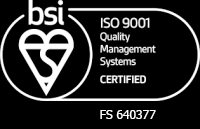In today’s fast-evolving manufacturing landscape, the integration of digital systems such as Production Planning, Enterprise Resource Planning (ERP), and Material Requirements Planning (MRP) systems is becoming essential for companies looking to maintain their competitive edge.
However, the successful adoption and implementation of these digital systems don’t rely on technology alone.
The journey is often smoother and the long-term benefits more profound when manufacturers first establish a strong lean culture.
What is a Lean Culture?
A lean culture refers to the mindset and practices derived from lean manufacturing principles, Lean thinking encourages continuous improvement and a focus on delivering value to the customer.
Implementing lean isn’t just about adopting specific tools or techniques, it’s about creating an environment where everyone in the organisation is committed to improving operations through incremental changes. When this mindset is embedded into the organisations culture, it creates the perfect foundation for the introduction of complex digital systems.
How Lean Culture Prepares Manufacturers for Digital Systems
Process Simplification and Standardisation
One of the key principles of lean is to simplify and standardise processes. When manufacturers streamline their operations, they remove unnecessary steps and ensure consistency. This makes it much easier to implement digital systems such as ERP or MRP, which rely on clean and clear data to function effectively.
A lean culture ensures that operations are well-documented and optimised, reducing the likelihood of encountering problems during the digital transformation phase. The simplified processes are therefore easier to digitise and standardised workflows can be mapped more efficiently to the software systems.
Focus on Continuous Improvement
Digital systems like ERP and MRP aren’t static. They require continuous monitoring and optimisation to deliver the best results. Lean’s focus on continuous improvement aligns perfectly with this need. Manufacturers who have already embedded this mindset are more likely to approach the implementation of digital systems as an ongoing journey rather than a one-time project.
Lean culture instils a sense of responsibility in employees at every level, encouraging them to look for ways to make the most of the digital tools available.
This active engagement with new systems leads to better utilisation and quicker problem-solving when issues arise.
Data-Driven Decision Making
Lean practices promote the use of data to guide decision-making, whether through tracking and analysing production efficiency and/or monitoring waste reduction. This creates a natural synergy with digital systems, which rely on vast amounts of data to optimise operations.
When manufacturers are already accustomed to using data in their decision-making processes, the transition to more advanced systems that provide real-time analytics and predictive insights becomes far smoother. This enables manufacturers to make faster and more informed decisions, further driving improvements in production planning and resource management.
Empowering Employees for Change
A lean culture empowers employees by encouraging them to take ownership of processes and contribute to continuous improvement. This mindset helps reduce resistance to change, a common challenge when implementing new technologies. Workers who are already accustomed to incremental process improvements are often more open to embracing digital systems that promise even greater efficiency and productivity.
Additionally, lean’s emphasis on cross-functional teamwork means that employees from different departments are used to collaborating closely, which is essential when rolling out company-wide systems like ERP and MRP.
Reduced Implementation Risk
Implementing any new digital system carries a degree of risk, from cost overruns to failed integration. However, a lean culture helps mitigate this risk by providing a clearer understanding of current processes, identifying potential issues before they arise, and fostering a problem-solving approach.
Manufacturers who already operate with lean principles tend to have a better handle on their operations, which reduces the chances of disruptions during system implementation. This focus on efficiency means that they can identify and eliminate potential bottlenecks before they affect the rollout of digital technologies.
Lean Culture and Industry 4.0: A Perfect Match
As the manufacturing industry moves towards Industry 4.0, characterised by automation and the integration of cyber-physical systems, the need for lean thinking is more relevant than ever.
A lean culture not only helps manufacturers prepare for the technical requirements of these new systems but also ensures that they can fully leverage the potential of digitalisation.
The integration of lean principles with digital systems can unlock greater operational efficiency and drive continuous innovation. By combining the two, manufacturers are not just making incremental improvements, they are laying the groundwork for a more agile and futureproofed organisation.
While digital systems like ERP, MRP, and Production Planning software offer the potential for significant gains in efficiency and productivity, their success depends largely on the organisational culture in which they are introduced. Manufacturers that have already embraced a lean culture are better positioned to take full advantage of these tools, ensuring smoother implementation and a more engaged workforce.
Ultimately, the positive correlation between lean culture and digital transformation lies in their shared goal of continuous improvement. By aligning lean thinking with the opportunities presented by new technologies, manufacturers can achieve long-lasting success in an increasingly competitive and digitised market.
“At BrookConsult, over the last 12 months we’ve seen first-hand the importance of adopting a Lean culture when helping over 40 SME Manufacturers in Yorkshire and Humber scope and implement Industry40 / digital systems. Streamlined processes and empowered teams are essential elements to create the ideal foundation for ERP, MRP, and Production Planning systems to thrive.
When lean principles are in place, digital transformation becomes a smoother and more impactful journey for manufacturers…”
– Dom Brook, Managing Director, BrookConsult.
“Organisations that embrace change as part of their culture, rather than just on a project-by-project basis, are far more likely to achieve lasting gains in productivity and performance. I’ve seen firsthand how companies drive better results from digital transformation by first investing in their people—equipping them with the right skills—before optimising processes and finally integrating new technology…”
– Dan Briscoe- Managing Director Click2Learn
Lean Manufacturing





